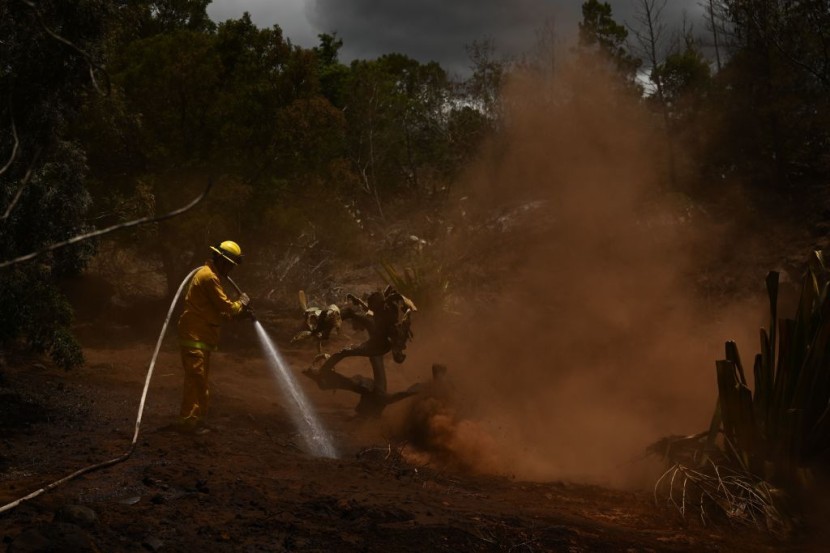Residents saw toxic vapors shooting into the air as burning homes, pipelines, and cars combusted, turning rubber, metal, and plastic into poisonous, particulate-filled smoke as flames rushed through western Maui and engulfed the town of Lahaina.
The Hawaii Tourism Authority reports that since the destruction became obvious last week, some 46,000 residents and tourists have flown out of West Maui.
Poisonous Leftovers From the Wildfires

More than 90 individuals have passed away, and now officials are mourning their loss and preparing the island, especially Lahaina, for a protracted recovery.
Authorities are concerned about returning to some areas of the island where poisonous leftovers of the fire are expected to still be there in addition to the people lost, property devastated, and culture forever altered, according to The Associated Press.
Some islanders have started going home to see melted automobiles, destroyed houses, and burning elevator shafts rising from ashy areas where formerly stood apartment buildings.
However, even in areas where the devastation has started to slow down, authorities advise locals that it is still too risky for them to return, and Federal Emergency Management Agency experts are scouting the region for potential threats.
State toxicologist for Hawaii, Diana Felton, said that cleaning up the toxins might take weeks or months. Scientists have cautioned that fires, even after they have been put out in a specific neighborhood or area, can leave behind long-lasting health concerns, including in the air and drinking water.
Such long-lasting consequences can make rehabilitation more difficult, exacerbate the suffering of locals, and impede the island's tourism-based economy's eventual recovery.
Maui water officials advised residents of Lahaina and Kula not to consume flowing water since it may still be contaminated even after boiling. They were also advised only to take brief, lukewarm showers in well-ventilated spaces to prevent exposure to chemical vapors.
Read Also : Hawaii Wildfire's Death Toll is Expected to Rise; Number of Deaths Reaches Over 90 Victims
The Effects of Mauii Wildfires
Fires like the one on Maui can leave a less predictable path of devastation than manufacturing pollution or forest fires, where scientists have a firm grasp on the types of pollutants spewed. Tanks of propane explode, pipes melt, and oil pours as cities like Lahaina burn.
To prevent airborne contaminants from smoke from being kicked up and inhaled as people return to the burn zones, emergency response workers may need to remove them from the ground. The dangerous water advisory issued for upper Kula and Lahaina on Friday reflects the concern that melting pipes could endanger the water supply.
Although these issues might not be as obvious as burned trees and houses, the invisible dangers can frequently be found wherever smoke plumes have traveled.








